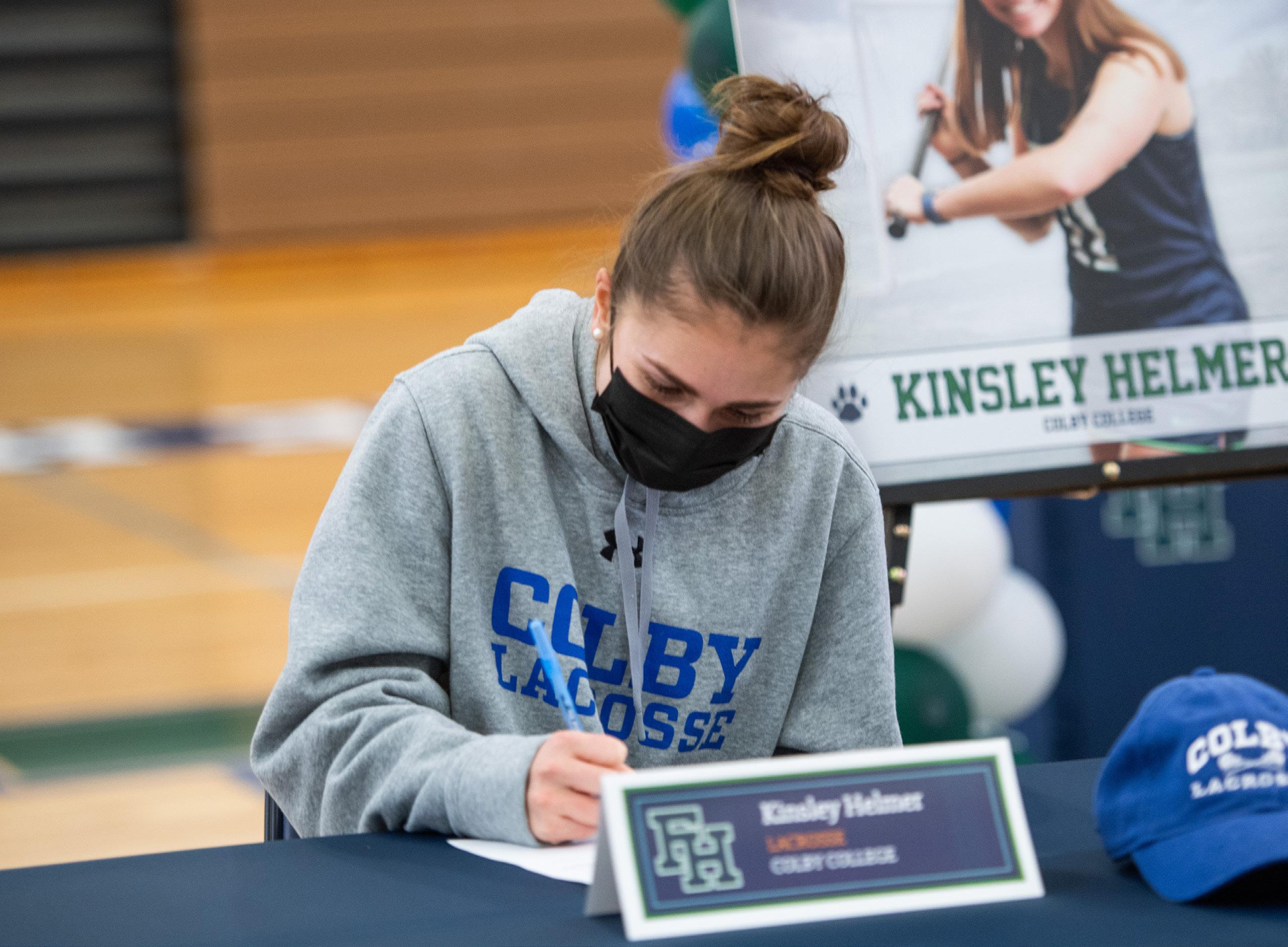
12 minute read
Holistic Health
How two Flint Hill leaders are preserving our community’s mental and physical wellbeing from behind the scenes.
In k-12 schools across the country, counselors and school health personnel work a bit differently from what you’ll find at Flint Hill. At other schools, for counselors, the lines between mental health and academic counseling are often blurred. Particularly in higher grades, school counselors often find themselves juggling the responsibilities shared by Flint Hill’s college counselors, advisors and mental health counselors. School nurses assess and intervene with day-to-day medical needs and support students dealing with chronic health conditions, but their work is not always connected to the efforts of their colleagues who are focused on student mental health. The National Survey of Children with Special Healthcare Needs has determined that 11.2 million U.S. children are at risk for chronic physical, developmental, behavioral or emotional conditions, and those numbers are on the rise. Schools need mental and physical health resources that are specialized, integrated and personal, and at Flint Hill, Director of Counseling Ilana Reyes and Director of Health Services Mary Hart are driving that work forward.
For Reyes, coming to Flint Hill felt serendipitous. An independent school graduate herself, Reyes felt a particular connection to the private school world, despite spending most of her career working in
public schools. One night last year, after talking to her husband about exploring independent schools for one of their sons, unsolicited, she received the job posting for the director of counseling position at Flint Hill.
“I still get chills thinking about it,” Reyes recalls. “And when I got the job listing, I thought ‘Huh, maybe it’s meant to be.’ And now I know in my heart that this is the school community where I’m meant to be doing my counseling work, and where my kids are supposed to be.”
Reyes officially joined Flint Hill in July 2020, stepping into the role previously held by Barbara Benoit, who retired at the end of the 2019–20 school year. Taking on a new position in such a critical function during a pandemic would be daunting for most, but Reyes has taken it in stride, sharing, “I could not be more thankful because even on a really hard day during COVID, this is still more amazing than anywhere else I’ve ever been.”
The COVID-19 pandemic has taken a toll. According to Time magazine1, in the spring of 2020, anxiety, depression and adjustment disorders increased 80-90% year over year for children aged 13-18. And, more than 42% of people surveyed by the U.S. Census Bureau in December reported symptoms of anxiety or depression, an increase from 11% the previous year2 .
Pandemic restrictions have shifted the scope of services provided by the Counseling Office this year by limiting in-person programming, but the team is as busy as ever supporting students, parents and employees. Throughout the year, Reyes has engaged in periodic Social-Emotional Check-In surveys to faculty and staff to gain insights into how the adults on campus are faring through COVID-19 and where there are opportunities for the School to provide additional support. In February, Reyes hosted two virtual coffees for senior parents on how to help their children as they grieve the loss of a traditional senior year. And, the Counseling Office is continuing to provide comprehensive social-emotional guidance and support to the Flint Hill community, evaluating and assessing students, performing crisis intervention, providing referrals for students and employees, and consulting families on student social-emotional challenges — almost entirely virtually.
Director of Counseling Ilana Reyes with her children, Bennett ’31 and Graham ’28, on the first day of school at Flint Hill.
1 Kluger, J. (2021, March 4). Insurance Claim Data Show How Much Teen Mental Health Has Suffered During the U.S. COVID-19 Pandemic. Time. https://time.com/5943896/ covid-19-teen-mental-health/
2 Abbott, A. (2021, February 3). COVID’s mental-health toll: how scientists are tracking a surge in depression. Nature. https://www. nature.com/articles/d41586-021-00175-z

Director of Health Services Mary Hart being recognized as a Frontline Hero by Magnus Health for going above and beyond to help manage student health during the pandemic. “The challenge I worry about the most is the kids that we don’t see,” Reyes shares. “Counselors aren’t seeing our virtual students walk by us in the hallways, and we’re not seeing in-person students under their masks. There is this balance we need to strike between preserving physical safety with all of the limitations and making sure that students and employees are still getting the support they need to navigate their current world, which has been hard to do for almost everyone in the last year.”
While Director of Health Services Mary Hart has had a bit more time at Flint Hill, her role has expanded significantly since she joined the School in 2018. Hart spent a number of years working as a nurse in traditional clinical and hospital settings before transitioning to schools to have more flexibility to spend time with her children. Hart briefly relocated to Florida before returning to Northern Virginia with her family, and similar to Reyes, a tip about an open position led her to Flint Hill. “I had just interviewed [for another position] and was planning to accept an offer,” she recalls. “And then I got a call from a recruiter asking me to interview at Flint Hill. I loved it from the moment I walked into the School. Matter of fact, I still can remember that feeling when I was talking with John [Thomas], ‘Oh my gosh, I wish I could have gone to this school.’”
When Hart first joined the School, she had a more traditional role in the Lower School clinic. Hart quickly became a warm and familiar presence among students and faculty alike, providing solutions from minor to more extensive student and staff health concerns, emergency situations, chronic health conditions, staying in touch with parents and physicians regarding student care, and the interwoven issues of physical and mental health. Then, last winter, COVID-19 surfaced in the U.S. and everything changed. Hart became Flint Hill’s version of Dr. Fauci, the now-famous director of the U.S. National Institute of Allergy and Infectious Diseases and chief medical advisor to the president. From the earliest days of the pandemic on, Hart has served a pivotal role at Flint Hill, providing medical guidance, consulting on policies, liaising with local health officials, and engaging with families as Flint Hill planned for, and ultimately executed, its reopening plan for 2020–21.
“I don’t think people realize just how significant Mary’s role has become,” says Headmaster John Thomas. “Every decision we made about safety for our reopening plan has Mary’s fingerprints on it. During the school year, every time a COVID case has been reported, or someone has

Hart stands with John Thomas, 11th grade parent Ming Li, and a sales representative from Li’s company, InHand Networks, which donated a temperature screening kiosk to Flint Hill.
symptoms, it goes to Mary. She is in constant communication with parents, students and employees, talking through symptoms, test results, policies, you name it, seven days a week. It’s a big job.”
While COVID-19 has consumed most of the conversation around mental and physical wellness during the past year, the work that Hart and Reyes are doing at Flint Hill goes much deeper than that. For one, Flint Hill’s Counseling Department is highly specialized, composed of six professionals across all three divisions who focus exclusively on mental health and wellness. This focus allows Flint Hill students to benefit from counselors who know and understand them exceptionally well and work collaboratively with other Flint Hill faculty and staff and outside mental health professionals to provide student support. Some counselors also have a presence in the classroom, teaching Wellness and Life Skills and Human Development programming. College counseling and academic advising are handled by other specialists at Flint Hill. “For me, the mental health piece, the social-emotional wellness is the crux of everything,” Reyes says. “And in most institutions, that isn’t allowed to be the only piece counseling focuses on; that’s the extra bonus here. That is the difference at Flint Hill. We have the resources and staff, so everyone gets to be an expert in their area and allow kids to grow and thrive within this environment.”
-Mary Hart
In the area of Health Services, Flint Hill is fortunate to have a registered nurse in every divisional clinic, which Hart says enhances the continuity of care that students receive. Our nurses are trained in assessment and develop relationships to foster healthy lifestyles for our students. Our athletic trainers were also redeployed this year to help the Health Services team with temperature screening and assist with additional operational needs in each of the divisional clinics. Hart shares that Flint Hill’s nurses are “part investigator, part listener and part clinician.” Beyond assessing and treating day-today health concerns, Flint Hill nurses often connect the dots between student symptoms and clinic visits and potentially larger issues. “Sometimes it’s a combination of what we’re seeing and what we’re hearing from colleagues in other departments,” Hart says. “It’s a collaborative effort, and we sometimes need to dig deeper beyond what we’re seeing in the clinic, working with the student and their physician, working with a counselor and their teachers and advisors to come up with a plan to help the student flourish academically, emotionally, socially and physically.”
This kind of collaboration is also a differentiator. Families might be surprised to learn how frequently members of the Counseling and Health Services Departments partner with each other, academic leadership, human resources and even admission to meet the health and wellness needs of the Flint Hill community, particularly when it comes to preparing students for the next step. “We’re not just there to put a Band-Aid on a skinned knee,” Hart says. “There’s just a lot more to it. And it seems to be on the rise that we have, for instance, different diagnoses that have a huge impact physically as well as socially and emotionally, and that, in turn, can
First graders practice some mindfulness techniques during the day.

affect their academic success. We are not just concerned about today, and how they are doing while they are at Flint Hill, but helping them to establish healthy habits for the future.”
Looking ahead to a return to pre-pandemic normalcy, Hart and Reyes have a desire for the School’s mental and physical health efforts to intersect even further. “Over the years, there has been more and more of an acknowledgement of the intersectionality of physical and mental health,” Reyes says. “But we’re still very much on a journey. We as a society, and American society especially, have been historically less accepting of mental health needs, and making mental health wellness a priority. When you are struggling with your mental health, it oftentimes manifests in a physical sense. And that’s I think where we see the biggest interconnection, or where we start to see the interplay in schools. If we treat mental health without addressing physical health or vice versa, we’re doing our kids a disservice.”
Hart adds, “I’ve been really appreciative that Ilana has come on board and has been open to working together. We’ve tried to start from the get go of really working collaboratively and recognizing the need for us to both know what’s going on with our students.”
Hart and Reyes are hoping to have more regularly scheduled time in the future to meet and work together, identifying how their departments overlap and where there may be new opportunities to ensure that students’ physical and emotional health needs are met. Reyes says, “I think this is an evolution, and I am really happy how, at least in my first year, we’re starting to work together. It’s not always been recognized how important it is for our two fields to work collaboratively. Mental health and physical health go hand in hand. They’re just labeled differently. We have to constantly make connections to support each other, because the clinic sees things that we don’t see, and counseling sees things that they don’t see. And oftentimes we’re seeing similar kids. We have to continue to work together, and continue to build that foundational relationship to support our kids better.”
Reyes also hopes to spend time evaluating the Counseling Program through a fresh perspective, an exercise that has been put on hold due to the pandemic. “Normally for a position like this, it’s important to spend time looking at what’s going well and where there could be improvements,” Reyes says. “You might need to take a year to see what it all looks like. But in this case, I had to dive right in. And my focus has been respecting the fact that I have an incredible team of people who are really good at their jobs and allowing them to do what they know, and supporting them, meeting them wherever they are and helping them grow.”
She concludes, “We have great people in place. The School has made social-emotional health and physical health a priority, and now we have an incredible opportunity to harness the human resources we have to integrate these two departments in even more effective ways for our students.”
-Ilana Reyes
Meet the Health Services Team

Mary Hart, RN
Director of Health Services

Jenny Beck, BSN, RN
Lower School Nurse

Derek Ross, ATC
Head Athletic Trainer

Kaley Mason, BSN, RN
Middle School Nurse

Liz Hammond, BSN, RN
Upper School Nurse
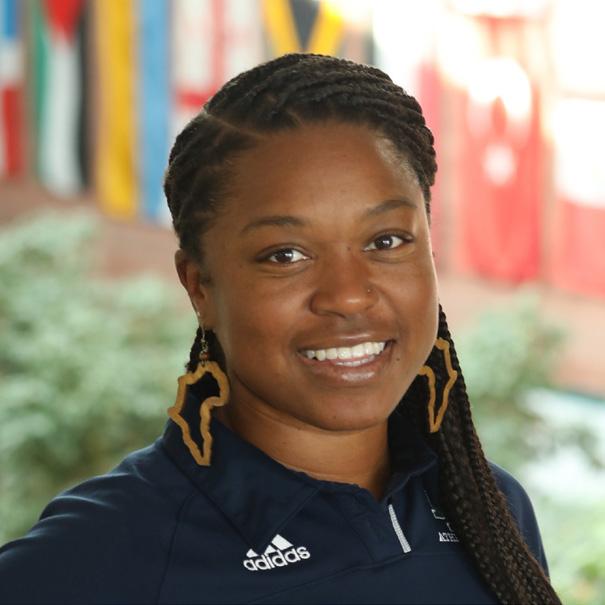
Ashley Williams, ATC
Athletic Trainer

Marguerite Holliday-Poyer
Nurse

Kara Tribbie, ATC
Athletic Trainer
Meet the Counseling Team
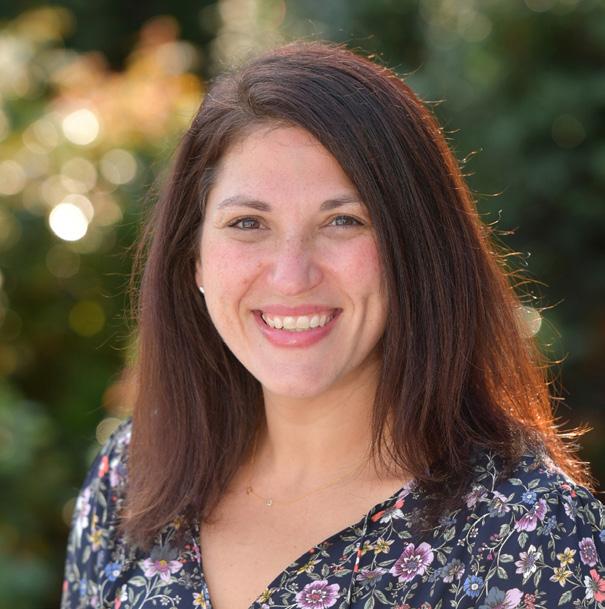
Ilana Reyes
Director of Counseling
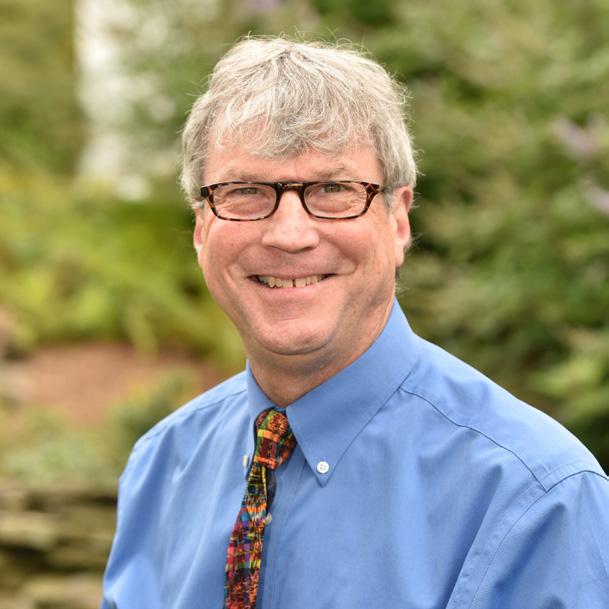
John Magner
Associate Director of Counseling and Middle School Counselor

Andrew Doll ’03

Charlotte Fomengia
Upper School Counselor and Human Development Teacher and Upper School Service Coordinator
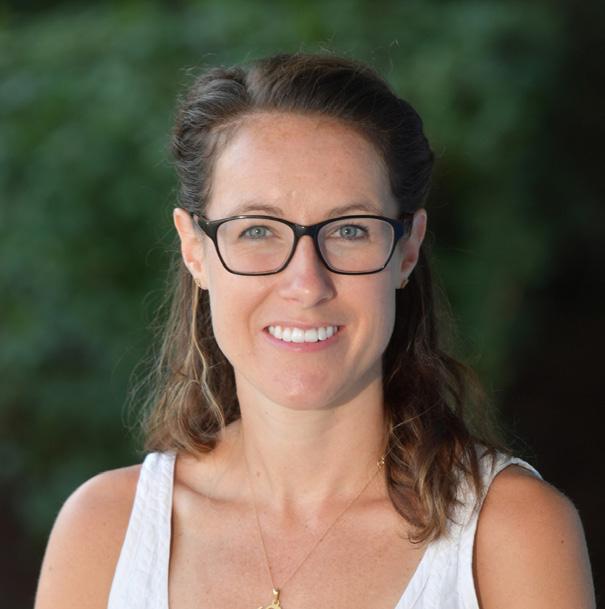
Emily Sorbi
Lower School Counselor






